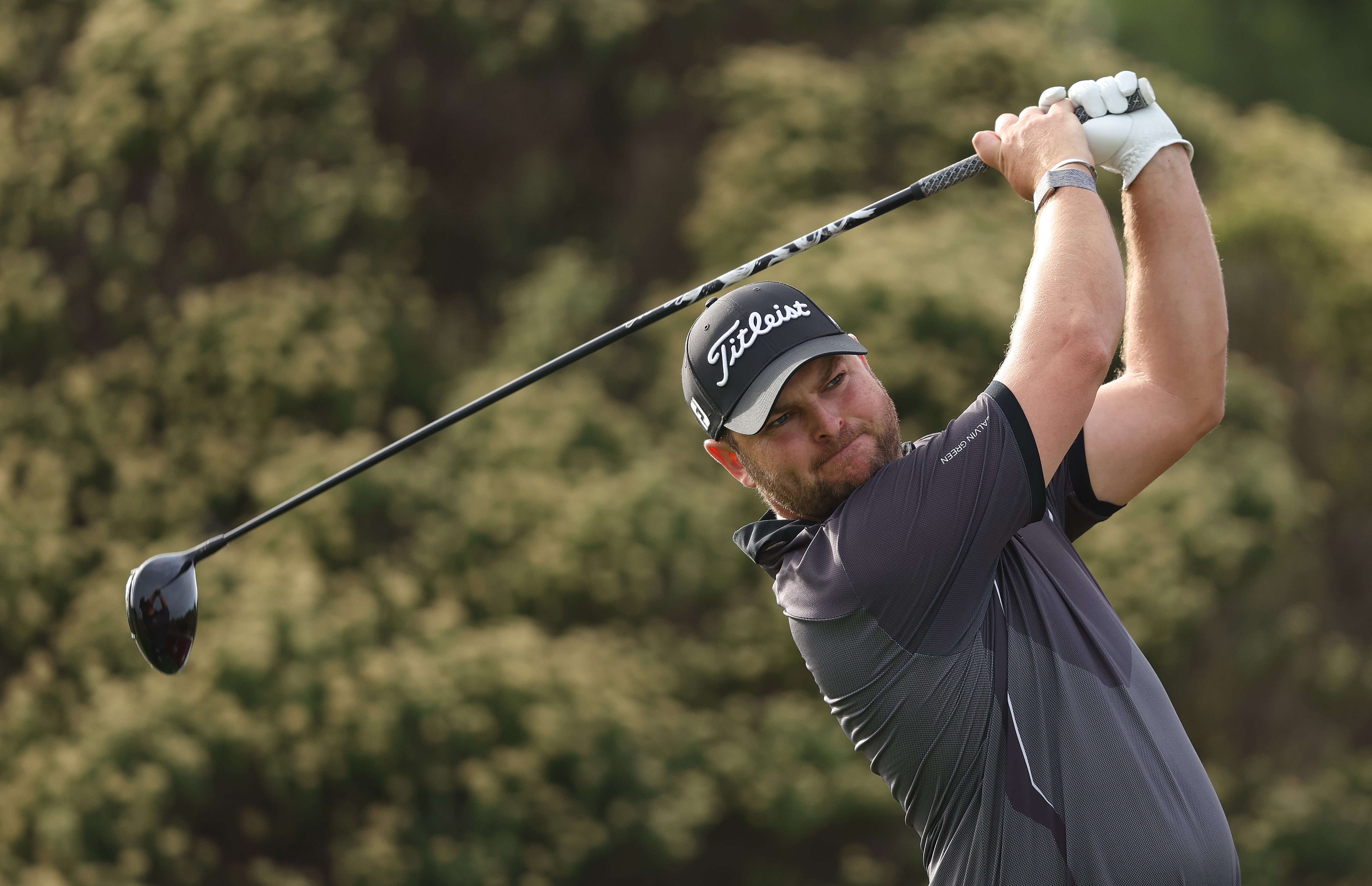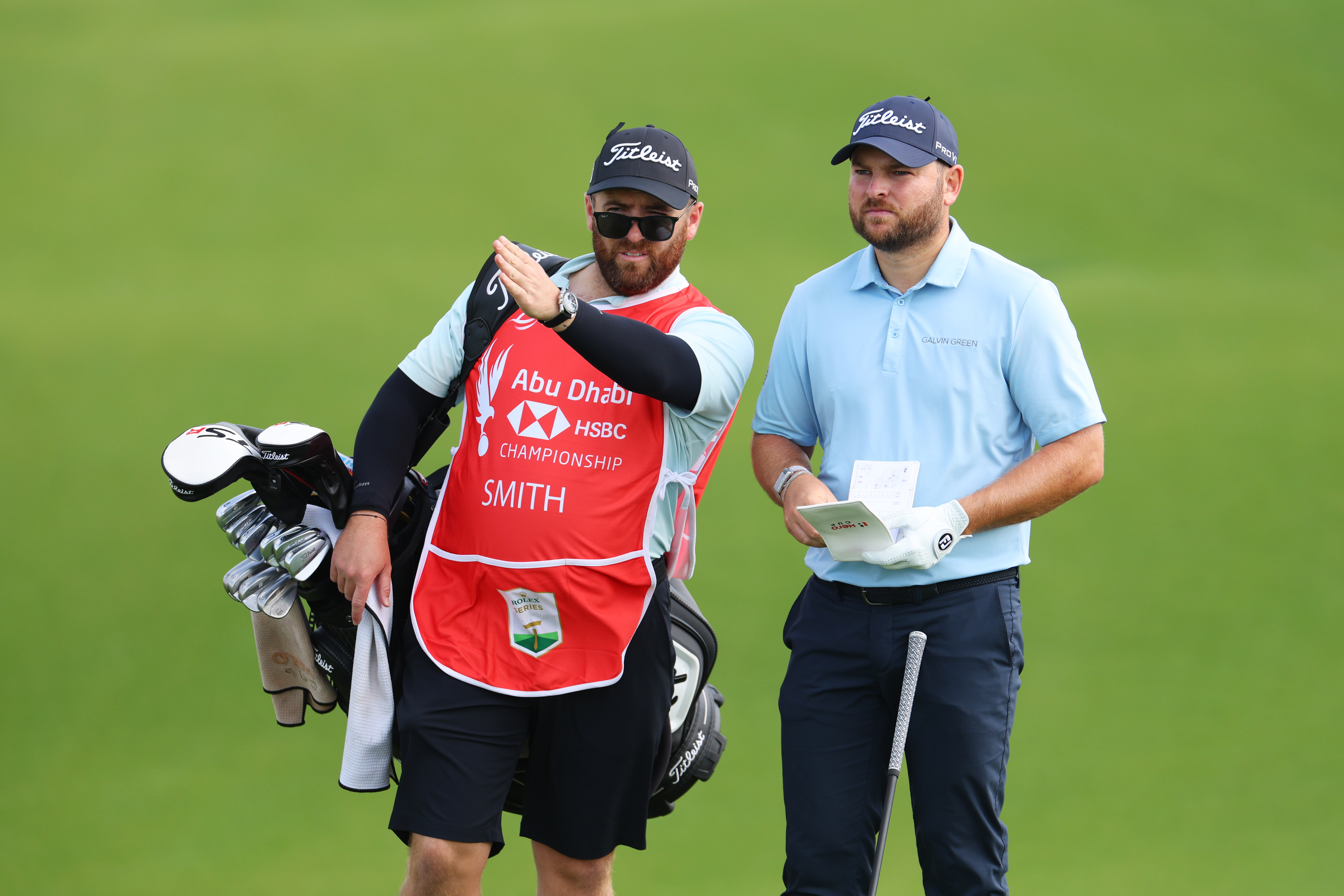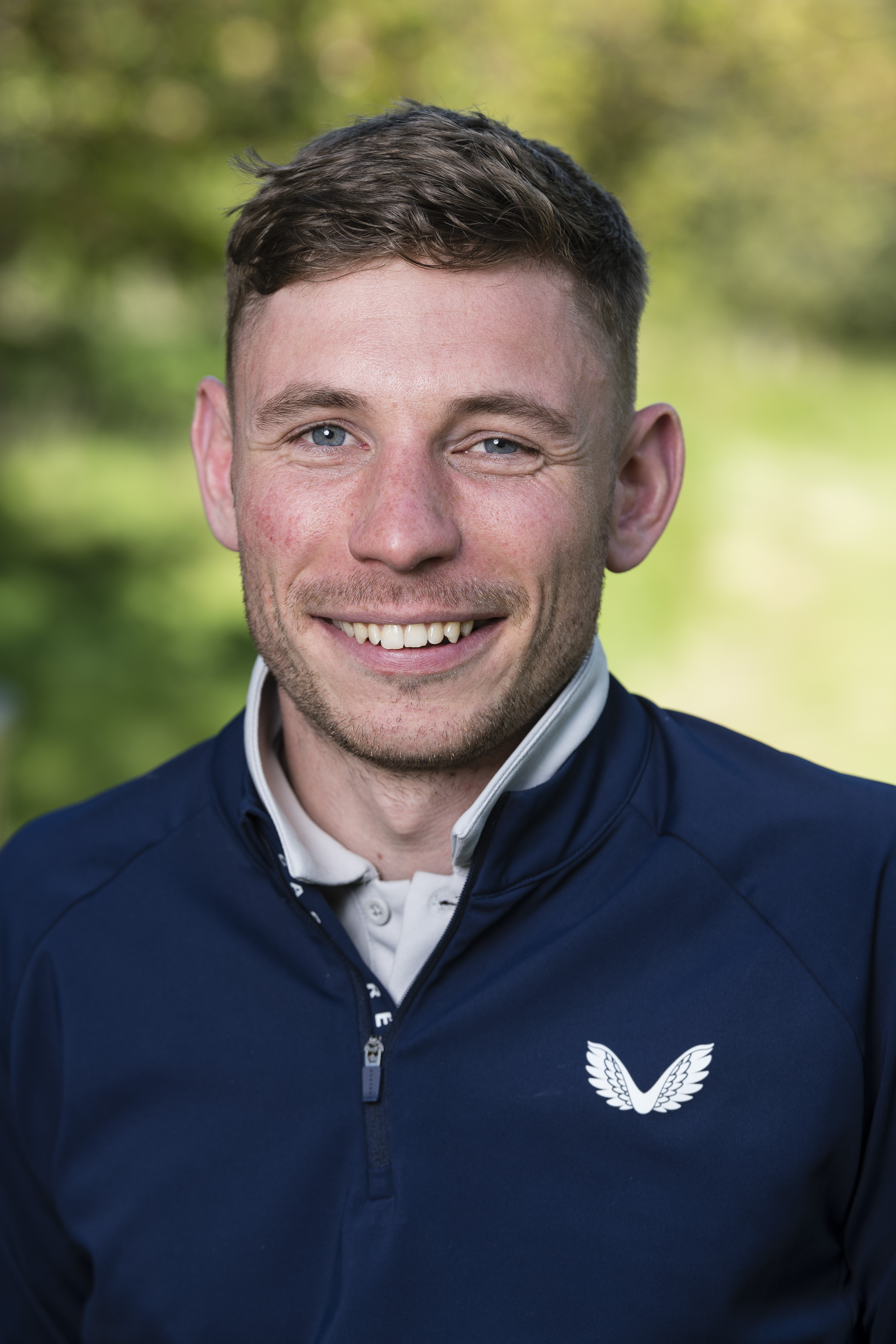'You're Looking For The Tiniest Percentages...' Inside The Mind Of A Tour Player
DP World Tour Player Jordan Smith takes us through his top tips on how you can play like the pros.


Watching professional golfers is a fantastic way for amateur players to improve their skills.
Even just tuning in to the coverage of the DP World Tour and PGA Tour can give you an insight into some of the game-changing tactics and tricks professional golfers use that you can also adopt to save a few shots around the course.
You might catch a glimpse of a golfer lining up their putt in a unique way or maybe see someone stashing a specific snack in their bag. Either way, if the pros are doing it, then perhaps us amateurs should be doing it too!
So, we decided to sit down with DP World Tour player Jordan Smith and his caddie Sam Matton, to find out if there are any special insights we can learn from a professional golfer that you might not have spotted on the television.

Jordan Smith won an Electrified GV70 for hitting a hole in one at the Genesis Scottish Open. For more information visit www.genesis.com.
After turning pro in 2014, this season will be Smith's 10th year playing on the DP World Tour, so he was the perfect person to talk to considering his experience playing at the top level.
And it's been a busy 12 months for the Englishman, who claimed his second win on the DP World Tour at October's Portugal Masters, before wrapping up the year with a career-high 12th-placed finish in the European Tour rankings.
Smith even carded a hole-in-one at the Genesis Scottish Open back in July and won a Genesis electrified GV70 car, as well as an all-electric GV60 for his caddie, Matton.
Subscribe to the Golf Monthly newsletter to stay up to date with all the latest tour news, equipment news, reviews, head-to-heads and buyer’s guides from our team of experienced experts.
So, having sat down with the duo at the Genesis Car Studio in London's Battersea Power station, here are six things we've learned from Smith that may help you improve as a golfer...

Are there any processes you go through when playing a pressure shot?
With ranking points and prize funds on offer, every shot counts for a professional golfer, so we wanted to find out whether there were any specific processes Smith goes through when he addresses a pressure shot or putt.
And for anyone struggling with where to put their mind when addressing the golf ball, the 30-year-old has a very interesting tip for you that he learnt from a psychologist.
"The one thing I’ll always remember that a psychologist taught me when I used to play for England is if you have a pressure shot, instead of thinking about what you normally would, just try to picture the flag," he said.
"Then when you address the ball, just picture that in your head, so that all you’re thinking about is the flag - rather than, 'ah I don’t want to hit it in the water, or I don’t want to hit it in the trees.'
"It sort of blocks everything else out so you’re only thinking about one thing rather than a million things."
Manifesting your attention onto a location where you want to hit the ball is a very simple yet effective way to achieve results. Smith uses that to paint a calculated view over what he wants to do before he sets up to play each shot.
"I think because the process [when playing a tricky shot] is always working out how far I want to hit it and where I want to hit it - that distracts you from other things," he added.
A post shared by Jordan Smith (@jordansmithgolf)
A photo posted by on
Warming up is critical
Being well prepared for your round can go a long way in helping you alleviate some of the mental difficulties that playing competitive golf can throw at you.
While a professional will have a much more rigorous training and preparation regime than an amateur, Smith works hard on getting certain aspects of his game dialled in before a round.
And warming up properly is perhaps one of the most important parts of the day for the 30-year-old.
"For me its, warming up in the gym because I’m useless if I haven’t warmed up," Smith said, when asked about what the most important part of his pre-round routine is.
"If I go straight to the range then my body just feels horrendous and I can’t do what I want it to do.
"So getting warmed up in the gym, stretching and moving is very important for me."
Cleaning your grooves is just as important as cleaning your grips
Preparedness doesn't just extend to what you're doing in your warm-up, it also means taking care of your equipment. And when we're talking about fine margins on the golf course, ensuring your clubs are clean and ready to play can really help you reduce your score.
While most amateur players only clean their sticks every couple of months, Matton and Smith are cleaning the grooves and wiping down the grips on their clubs after each shot.
"I notice when I’m away for a week and he's been practicing, I’ll turn up and there are a few clubs that are just plastered in mud," Matton said.

"But generally when we’re at a tournament, they’re cleaned after every shot.
"I give the grips a scrub most mornings. Because they get full of sun cream and sweat. So even tiny things like that we've got to think about."
The level of detail the pair place on ensuring their clubs are performing at their best is evident in some of the stats Smith has racked up this season on the DP World Tour, with the Englishman sitting ninth for sand saves and ninth again for greens in regulation.
"You’ve got to make sure all the grooves are empty of rubbish," Smith said.
"We’ll get a new set of wedges every month or two, because you need the grooves to be as sharp as possible so we can get that control over the golf ball."
While most amateurs won't be able to get a new set of wedges every few months, there is plenty an amateur player can do to ensure that they keep their wedges sharp and tacky on the golf course.
Check out our advice on how to clean your golf clubs and grips.

How do pro golfers deal with pressure on the course?
This season, Smith is hoping to secure a spot on Luke Donald's Ryder Cup team but admits he's just taking it one week at a time.
"I just can't look too far ahead at the minute. If I did, I'd start putting too much pressure on myself," he told us.
The best players in the world are those who can hold their nerve and stay focused on the job at hand when the going gets tough.
And for Smith, a lot of that boils down to his relationship with his caddie, Matton, who helps distract his mind away from the pressures of the game.
"And we do chat a lot of rubbish away from the shot. We chat about everything and anything."
Jordan Smith
"Basically it's just to stay patient and stick to what we’ve been doing because we know it works," Matton said, when asked what the pair do to stay calm on the course.
"And we do chat a lot of rubbish away from the shot. We chat about everything and anything," Smith added.
"There's a lot of distraction and it's mostly just any old nonsense," Matton continued.
"We just try and keep it all as normal as possible really. Just general chat like we would anywhere away from golf. We talk about football, sports and take the mick out of each other."
While most amateur players may not have a caddie to help them maintain that normality, why not just have a good old natter with your playing partners instead!
🚨 ACE!! 🚨Jordan Smith wins a new car for himself and his caddie after hitting a hole in one at the Scottish Open on the 17th hole! 🚗🤩 pic.twitter.com/SA9zlnhOPrJuly 8, 2022
Playing the conditions: What do you put in your bag?
One other way to better prepare yourself for a round of golf is to ensure you have the right equipment for the course you're playing.
And this extends to everything from the snacks you're stashing in your bag to the clubs you're taking with you.
"I’ll always carry about 16 to 17 clubs", Smith said. "So I will always have a 2-iron and I’ll have a 5-wood, which will go in depending on the conditions.
"If its windy or firmer maybe the 2-iron. But if it's not so windy, there’s a lot of par fives and the ground is soft, then I’ll go from the two to the five.
"And then I have two lob wedges that are for different conditions. So one is for firm ground and one is for softer terrain. I’ll also always carry two putters just as a back-up."
Equally nutrition is vitally important for Smith, who gave us a run down of the snacks he takes out on the golf course to keep him feeling energised.
"Yeah we have bananas and we usually have our protein bars. We also have like an energy gel that we take half-way round and sometimes we’ll have sandwiches and biltong."

Jordan Smith won an Electrified GV70 for hitting a hole in one at the Genesis Scottish Open. For more information visit www.genesis.com.
Post-Round analysis is vital
It's recently been well documented the level of detail that Matt Fitzpatrick goes into when analysing each shot after he comes off the golf course.
But he's not the only one looking into the minute stats from each shot, with Smith also working with the same system that the US Open champion uses to track how he's played.
"We do our stats as well, we jot them all down. It is very handy," he said.
"We use the same system that Matt [Fitzpatrick] uses as well. It's also the same as Eduardo Molinari who set up his own system basically after 15 to 20 years of recording every shot he hit too. So it goes to like ‘Nth degree'.
"Obviously where we are, you’re looking for the tiniest percentages that you can, to help you improve."
And if that gives away how much he regards the importance of his post-round analysis, then that should certainly inspire many amateur players who are hoping to improve, to spend more time looking into the statistics behind their game.
While you might not have the time to write down every shot after a full 18-holes, perhaps noting your three best and three worst shots from a round may go a long way to helping you shoot lower scores.

Ed has been playing golf for as long as he can remember and is obsessive about the sport. He is regularly sought after by family members and friends for advice on what equipment to buy and uses his background, having written extensively on golf in the past, to produce equipment orientated content for Golf Monthly.
Having obtained a Masters in Law with Medicine from the University of Liverpool, Ed has recently changed paths into journalism and just last year achieved his NCTJ Sports Journalism Diploma with the Press Association.
He has written for a variety of media outlets over the years and has interviewed some big names in sport, including Premier League managers, All Blacks Coaches and Grand Slam tennis superstars. He has also worked on some huge sporting events, including the 2021 Australian Open and the 2022 FIFA World Cup. And when he's not writing for Golf Monthly, you'll find him producing news and feature articles for the MailOnline's sports desk, where he covers everything from football to rugby union.
During his weekends off, you'll likely find Ed heading out for a round at one of his local golf clubs with his friends, and was, up until recently, a member at the Leatherhead Golf Club in Surrey. Ed also plays the saxophone, can tell you some pretty terrible dad jokes and can knock up a very tasty carbonara!